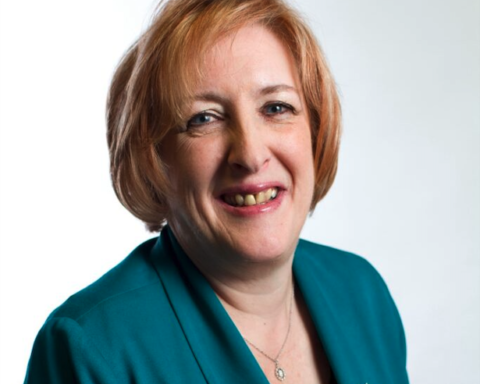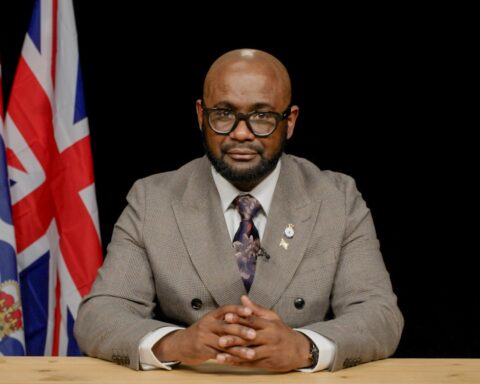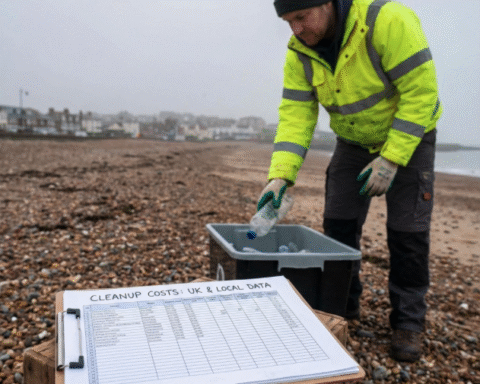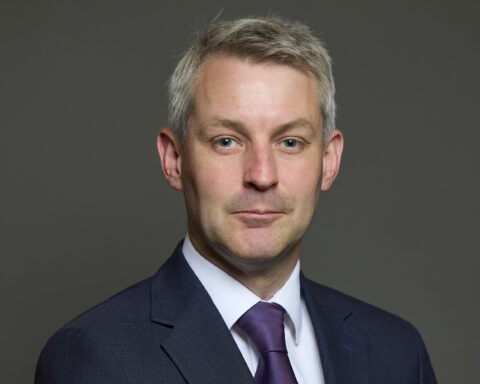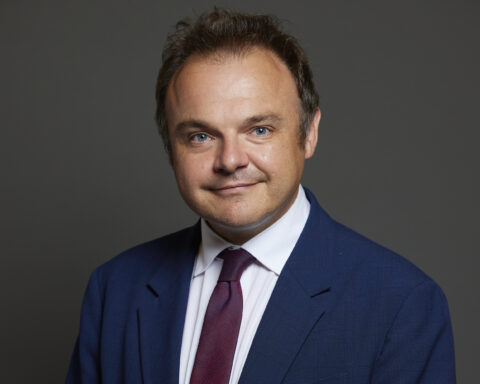
David Blunkett News News
David Blunkett News
David Blunkett is a veteran British Labour politician who served as Home Secretary under Tony Blair. Despite being blind from birth, he rose to high office and became a symbol of determination and resilience. Blunkett played a key role in education, policing, and anti-terror legislation during his time in government.
Latest News
More News

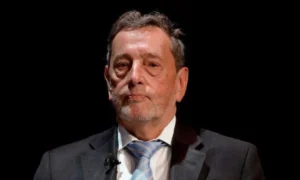
Lord Blunkett calls for urgent safety review of tube platforms

Lord Blunkett, Former Home Secretary, questioned by MPs on IPP Sentences
Opinion
More News
Washington, February 3, 2026 — In coverage carried by Parliament News the Trump Petro talks began in the US capital as former US
MoreThere is no question that the UK is a nation of animal lovers. Every week, my inbox is full of messages from
MoreLocal authority children’s services across the country are in crisis. Nowhere is that clearer than in my Woking constituency. In the early
MoreWashington, February 2, 2026, According to Parliament News, that has become the center of renewed labor and energy negotiations as union leaders
MoreWashington, February 2, 2026, Parliament News notes, that Washington opened with renewed fiscal uncertainty as lawmakers on Capitol Hill moved toward a
MoreIt is hard to find a better soundbite from a serving Government Minister than the Chancellor’s “Where things are built and by
MoreWhen people talk about the growing chapters of our national story, they often point to green energy, technology, or Britain’s evolving role
MoreI called an adjournment debate in the Commons last week to discuss the proposed East Park Energy development – a 1900-acre ground-mounted
MoreWhat does it mean to give every child the chance to fulfil their potential? That question lay at the heart of the
MoreNew York, January, 2026 — The US stock market today showed limited movement in early 2026 as investors in New York reacted
MoreDavid Blunkett, Baron Blunkett, PC (born June 6, 1947) is a Member of the House of Lords since 2015. He is a British Labour Party politician. Before this, from 1987 until 2015, he held the position of Member of Parliament (MP) for Sheffield Brightside and Hillsborough. In 2015, he resigned from his position.
From 1997 to 2001, Blunkett served as Education Secretary, where he introduced reforms such as requiring schools to provide children up to age 11 with a daily “literacy hour” and “numeracy hour” to improve basic skills. Despite not always being popular with teachers’ unions, these reforms were widely praised. His response to the September 11, 2001, terrorist attacks included tightening immigration law and proposing state identification cards.
Blunkett’s most notable role was as Home Secretary from July 2001 to December 2004. During this time, he faced significant challenges, particularly in the aftermath of the September 11, 2001, terrorist attacks in the United States. His response included tightening immigration law, proposing state identification cards, working towards prison reform, and strengthening anti-terrorism legislation. However, these measures were controversial and led to accusations of authoritarianism.
Despite the controversies, Blunkett’s time as Home Secretary saw a significant drop in crime, with over a 40% decrease from ten years earlier. He also reversed the large upsurge in asylum claims, closed the Sangatte refugee camp on French soil, and reduced refugee numbers from 110,000 to less than 30,000.
After leaving government in 2005, Blunkett continued to influence policy through various reviews and initiatives, including a review of the community and voluntary sector in 2006, dedicated school transport in 2007, and police accountability in 2008. He has also been a strong advocate for social mobility and affordable credit and has served as Chairman of the International Cyber Security Protection Alliance (ICSPA) since 2011.
In recognition of his contributions to British politics, Blunkett was awarded a Life Peerage in 2015, taking the title of Lord Blunkett, of Brightside and Hillsborough in the City of Sheffield. He currently serves as Professor of Politics in Practice at the University of Sheffield Department of Politics and Chair of the Board of the University of Law, positions he has held since 2015.
David Blunkett statements
On March 15, 2022, at the University of Sheffield, David Blunkett made a statement criticizing the government’s response to the cost-of-living crisis in the United Kingdom. He urged immediate action to support struggling families, saying, “The government must act now to address the cost-of-living crisis and provide support for struggling families. We cannot afford to wait any longer.” Blunkett advocated for a windfall tax on energy companies to ease financial pressure on households. He also emphasized the need for increased investment in renewable energy projects, such as the “Green Energy Initiative,” to reduce reliance on fossil fuels and mitigate the impact of price hikes.
David Blunkett, the former Home Secretary and Labour MP for Sheffield Brightside and Hillsborough, made a statement criticizing the UK’s decision to leave the European Union (EU) in an interview with The Guardian newspaper on June 23, 2022. He stated, “Brexit has been a disaster for the UK economy and has damaged our international reputation. It’s time to admit that leaving the EU was a mistake.” Blunkett highlighted the negative consequences of Brexit, including trade disruptions and economic uncertainty, and called for a “mature and honest debate” about the UK’s future relationship with the EU. His statement comes as the UK government continues to negotiate its future relationship with the EU, particularly in the context of the “Northern Ireland Protocol” and “Fishing Rights” projects.
On September 27, 2022, during a panel discussion at the Labour Party Conference in Liverpool, former Home Secretary David Blunkett delivered a statement calling for a major overhaul of the education system in the United Kingdom. Emphasizing the critical need for all children to have equal access to high-quality education regardless of their socio-economic backgrounds, Blunkett stated, “It is simply unacceptable that in a country as prosperous as ours, the quality of a child’s education should be determined by the circumstances of their birth.” He proposed the launch of the “Education Equality Investment Project” aimed at addressing funding disparities, improving teacher training, and expanding access to early childhood education and care.
On December 5, 2022, at the Royal Hallamshire Hospital in Sheffield, England, former Home Secretary David Blunkett made a statement addressing the challenges facing the National Health Service (NHS) at the hospital’s annual Christmas event. Blunkett expressed his concerns about the underfunding and understaffing of the healthcare system, stating, “The NHS is facing a crisis of underfunding and understaffing. We need a long-term plan to ensure that our healthcare system can meet the needs of the 21st century.” Blunkett called for increased investment in the NHS, particularly in the recently announced “NHS Transformation Plan,” a £12 billion project aimed at modernizing the healthcare system through digital technologies and infrastructure improvements. He emphasized the importance of addressing staffing shortages and improving patient care as part of this long-term strategy.
David Blunkett speeches
On November 10, 2022, at the Fabian Society in London, David Blunkett delivered a speech criticizing the government’s proposed changes to the Human Rights Act during the “Defending Human Rights in the UK” event. He expressed concerns about the potential impact of these reforms, warning, “The government’s proposed changes to the Human Rights Act are a dangerous step towards authoritarianism.” Blunkett emphasized the importance of defending human rights protections and safeguarding the principles of democracy in the face of legislative changes that could compromise the foundations of a free and just society. Blunkett also called for increased investment in the “Rights for All” project to ensure the protection of fundamental freedoms for all individuals.
On May 18, 2023, David Blunkett delivered a keynote address at the ASCL Annual Conference at the ICC Birmingham in Birmingham, England. The event was part of the city’s ongoing investment in education and infrastructure projects, including the £286 million Birmingham City University campus development. Blunkett, a former Education Secretary, spoke about the importance of education in transforming lives and promoting social mobility. He emphasized the need for high expectations, strong leadership, and a relentless focus on improving outcomes for all students. “Education was my way out. It liberated me and gave me the tools to succeed despite the challenges I faced,” he said. Blunkett’s speech served as a powerful reminder of the vital role that education plays in building a more just and equitable society.
In a speech at Chatham House in London, England on May 5, 2023, Lord David Blunkett emphasized the need for a nuanced approach to the Ukraine-Russia conflict. The former Home Secretary and Education Secretary acknowledged the complexity of the situation, stating, “Politics and public policy isn’t binary. There are nuances here that you have to take account of.” Blunkett urged the West to continue supporting Ukraine militarily while exploring diplomatic solutions, praising President Zelenskyy’s leadership. He also called on the UK government to facilitate dialogue, drawing on Northern Ireland’s experience. Blunkett’s speech reflects a growing sentiment among political figures seeking to balance support for Ukraine with avoiding confrontation between NATO and Russia.
In a speech at the Annual Conference on Immigration Policy at the Royal Institute of International Affairs in London on June 15, 2023, David Blunkett argued for a balanced approach to immigration. As former Home Secretary, Blunkett acknowledged the economic benefits of legal migration while recognizing the need to address local concerns. He emphasized the importance of managing the pace and composition of migration flows, stating “I don’t believe there is an obvious upper limit to the number of migrants the UK can accommodate.” Blunkett called for strengthening borders, addressing the root causes of displacement, and helping migrants integrate through language learning and employment. He also highlighted the need for investment in infrastructure and projects such as the “New Communities Fund” to support the integration of new arrivals.
On September 25, 2023, in Liverpool, David Blunkett delivered a speech at the Labour Party Conference. He passionately called for unity and determination in the pursuit of a fairer society. Blunkett emphasized the significance of investing in the NHS, advocating for affordable housing through the “Homes for All” project, and promoting job creation in green industries via the “Green Jobs Initiative.” He underscored the necessity of a Labour government that prioritizes the people’s needs, criticizing the Conservative government’s favoritism towards the wealthy. Blunkett’s address resonated with Labour Party members, inspiring them to uphold the party’s core values and strive for a brighter future for all, he stated, “Labour is best when it is bold, united, and truly Labour.”
In a speech at the House of Lords on October 16, 2023, during the “Emergency Debate on Gaza and Rafah Border” held in London, United Kingdom, Lord David Blunkett condemned the “terrorist and barbaric” actions of Hamas in Gaza. He expressed support for the Prime Minister’s three-step approach and urged the government to work with international partners to provide stable leadership in Gaza once Hamas is removed. Blunkett called on the government to urge Israel to comply with international law, including by supplying essential fuel to Gaza. He commended the Prime Minister’s leadership and engagement with partners to secure the safe release of British hostages taken by Hamas. As Blunkett stated, “The situation in Gaza is a humanitarian crisis, and it is our moral duty to act to alleviate the suffering of the people there.”
Who is David Blunkett?
David Blunkett was born on June 6, 1947, at Jessop Hospital in Sheffield, West Riding of Yorkshire, with a rare genetic disorder that resulted in improperly developed optic nerves. Growing up in a disadvantaged family, Blunkett faced significant challenges. In 1959, his life was forever changed when his father, a foreman for the East Midlands Gas Board, suffered a devastating industrial accident. He fell into a vat of boiling water and died a month later, leaving the family in poverty. The board refused to provide compensation for two years, citing that his father had worked past retirement age and died at the age of 67. This traumatic event had a profound impact on Blunkett’s life, shaping his future and informing his advocacy for social justice and equality.
Blunkett holds a Bachelor of Arts degree in Politics and History from the University of Sheffield, which he earned in 1970. Before entering politics, he worked as a lecturer at Barnsley College of Technology. He is currently a Professor of Politics in Practice at the University of Sheffield Department of Politics and Chair of the Board of the University of Law. He has held various significant roles in politics, including Leader of Sheffield City Council, Chair of the Labour Party, Member of Parliament for Sheffield Brightside and Hillsborough, Education Secretary, Home Secretary, and Secretary of State for Work and Pensions. Blunkett’s political career has been marked by his dedication to education reform, social mobility, and national security issues. He has one sibling, a sister named Hilary Blunkett.
Blunkett has been married twice. His first marriage was to Ruth Mitchell, with whom he had two children: Alicia and Hilary. The couple divorced in 1990. In 2005, Blunkett married Margaret “Sheila” Blakey, a former teacher and education consultant.
David Blunkett faced several competitors throughout his political career. Tony Blair, a fellow Labour Party member, shared a complex relationship with Blunkett, agreeing and disagreeing on party direction. Gordon Brown, another Labour politician, was seen as a rival within the party. Blunkett also clashed with Conservative leaders Michael Howard and David Davis on issues like crime, immigration, and civil liberties. Jack Straw, a fellow Labour politician, was another competitor on law and order and immigration policies. These rivals challenged Blunkett’s ideas and pushed him to defend his positions, contributing to ongoing debates within British politics.
David Blunkett’s biography is illustrated in the table below.
| Personal Information | |
| Full Name | David Blunkett |
| Birthday | 6 June 1947 (age 76) |
| Spouse | Ruth Mitchell (m. 1970; div. 1990),
Margaret Williams (m. 2009) |
| Number of Children | 4 |
| Position | Member of the House of Lords
Lord Temporal |
| Political Party | Labor |
| Education | Royal National College for the Blind, Hereford
University of Sheffield (BA) Huddersfield Holly Bank College of Education (PGCE) |
| Political Career | |||
| Position | Term | Preceded by | Succeeded by |
| Secretary of State for Work and Pensions | 6 May 2005 – 2 November 2005 | Alan Johnson | John Hutton |
| Home Secretary | 8 June 2001 – 15 December 2004 | Jack Straw | Charles Clarke |
| Secretary of State for Education and Employment | 2 May 1997 – 8 June 2001 | Gillian Shephard | Estelle Morris |
| Member of the House of Lords Lord Temporal | 13 October 2015 | ||
| Member of Parliament
for Sheffield Brightside and Hillsborough Sheffield Brightside |
11 June 1987 – 30 March 2015 | Joan Maynard | Harry Harpham |
| Leader of the Sheffield City Council | 1980 – 11 June 1987 | George Wilson | Clive Betts |
| Member of the Sheffield City Council
for Southey Green |
8 May 1970 – 1987 | Winifred Golding |
What Is Known about David Blunkett’s family and upbringing?
David Blunkett’s family and upbringing are characterized by significant challenges and resilience. Blunkett was blind from birth and faced a childhood marked by adversity. His father, Arthur Blunkett (August 12, 1919 – November 15, 1960), was a steelworker, and his mother, Doris Blunkett (née Williams, May 15, 1921 – January 12, 2005), was a domestic servant. Blunkett has one sibling, a sister named Hilary Blunkett (born September 12, 1945), who worked as a teacher. His father’s tragic death in a workplace accident when Blunkett was 12 left the family in poverty, leading to a protracted battle for compensation. Despite these hardships, Blunkett’s indomitable spirit propelled him to pursue education, attending schools for the blind and later studying Political Theory at the University of Sheffield.
Blunkett married his first wife, Ruth Mitchell (born October 15, 1949), a nurse, on August 24, 1973. Together, they had three sons: Alicia Blunkett (born July 12, 1974), a journalist; Nicky Blunkett (born November 20, 1976), a lawyer; and Nigel Blunkett (born March 5, 1980), a businessman. The couple divorced in 1990.
In 2004, Blunkett’s affair with Kimberly Quinn, a married former publisher of The Spectator, was revealed. DNA tests later confirmed that Blunkett was the father of Quinn’s son, Lorcan Quinn, born on August 16, 2002.
Blunkett married his second wife, Margaret “Sheila” Blakey, a doctor in Sheffield, in January 2009. They met in 2005 and had been engaged since 2008.
What is David Blunkett’s educational background?
David Blunkett’s educational background is marked by significant challenges and resilience. Born visually impaired on June 6, 1947, he was sent to a boarding school for the visually impaired in Sheffield at the age of four in 1951. He later attended The Royal Normal School for the Blind in Shropshire from 1951 to 1963.
In the 1960s, Blunkett studied economic history in further education, which influenced his commitment to history and citizenship. He believes that all children should study history through to age 16 and that literacy should be used as a way to deliver history in primary school. He also supports the integration of history into the broader curriculum and the use of technology to enhance learning.
Blunkett spent a total of six years going to evening classes and day-release classes to get the qualifications needed to go to university. He credits one teacher, Wilf King, with helping him through his physics A-level after he offered to attend the evening classes with him in 1967. At 22 in 1969, Blunkett became Britain’s youngest local councillor.
He worked as a clerk typist between 1967 and 1969. Blunkett graduated from the University of Sheffield in 1972 with a BA in Political Theory. He later worked as a lecturer in industrial relations and politics between 1973 and 1981.
How did David Blunkett’s political career begin and evolve?
David Blunkett’s political career began in 1970 when he was elected as the youngest-ever Member of the Sheffield City Council for Southey Green at the age of 22. He quickly rose through the ranks, serving as the Leader of the Sheffield City Council from 1980 to 1987.
In 1987, Blunkett transitioned to national politics when he was elected as the Member of Parliament for Sheffield Brightside, a position he held until 2010. During his time in the House of Commons, Blunkett served in various roles in the Shadow Cabinet, including Shadow Secretary of State for Health from 1992 to 1994 and Shadow Secretary of State for Education and Employment from 1994 to 1997.
Blunkett’s political career reached new heights when the Labour Party won the 1997 general election. Prime Minister Tony Blair appointed him as the Secretary of State for Education and Employment, a position he held from 1997 to 2001. In this role, Blunkett focused on education and skills development, working to improve early years education, schooling, post-sixteen skills, apprenticeships, higher education, and equal opportunities.
After serving as the Education Secretary, Blunkett was appointed as the Home Secretary in 2001, a position he held until 2004. During his tenure, he faced the challenges posed by the aftermath of the September 11 attacks, focusing on counterterrorism, crime prevention, immigration, and asylum management.
In 2005, Blunkett was appointed as the Secretary of State for Work and Pensions, serving in this position from May to November of that year. He then represented the constituency of Sheffield Brightside and Hillsborough from 2010 to 2015.
After his parliamentary career, Blunkett was appointed to the House of Lords in 2015, where he continues to contribute to public service and policy discussions.
Since leaving government, Blunkett has continued to be a vocal advocate for democratic politics and has undertaken various reviews and initiatives related to anti-poverty, affordable credit, social mobility, and youth volunteering. He has also been critical of the “antisemitism” and “thuggery” within the Labour Party under Jeremy Corbyn’s leadership, urging moderates to “stay and fight” to ensure the “voice of reason” prevails.
Which political party does David Blunkett belong to?
David Blunkett belongs to the Labour Party. Throughout his political career, he has been a dedicated member of the Labour Party, serving as a Member of Parliament for Sheffield Brightside from 1987 to 2015 and holding various positions within the party, including Leader of the Labour Party from 1980 to 1987 and Chair of the Labour Party.
Blunkett’s views on the Labour Party are shaped by his commitment to social justice and his experiences as a blind individual. In the 1980s, he helped author an unofficial tract on “The Labour Party’s Values and Aims” that insisted “the community must control the ultimate means of production”. However, he has stated that he always considered himself to be “firm left” and was against the efforts of more militant members of Labour to steer the party in a “much more revolutionary” direction, as he did not believe it was possible or desirable in the UK context.
As Blunkett’s political career progressed, he moved towards a more centrist position, helping to develop New Labour in the 1990s. He has spoken out against antisemitism and thuggery within the party in recent years, urging moderates to “stay and fight” to ensure the “voice of reason” prevails. He has also been critical of the party’s leadership under Jeremy Corbyn, stating that the likelihood of Corbyn winning a majority was “extraordinarily slim” due to the party’s internal divisions and the political landscape.
Blunkett’s views on the Labour Party are characterized by his dedication to the party’s core values of social justice, equality, and education reform. He has consistently advocated for policies that promote opportunity and inclusivity for all members of society and has worked to improve education and skills development throughout his career.
What are the key election results in David Blunkett’s career?
In the 1997 UK general election, Labour won a landslide victory, winning 418 seats (43.2% of the vote) compared to 165 seats (30.7%) for the Conservatives and 46 seats (17.2%) for the Liberal Democrats. Labour’s main competitors in this election were the Conservative Party, led by John Major, and the Liberal Democrats, led by Paddy Ashdown. Blunkett was appointed Secretary of State for Education and Employment in Blair’s first government.
Labour won a second term in 2001, with 413 seats (40.7% of the vote) to the Conservatives’ 166 seats (31.7%) and the Liberal Democrats 52 seats (18.3%). The main competitors in this election were the Conservative Party, led by William Hague, and the Liberal Democrats, led by Charles Kennedy. Blunkett was promoted to Home Secretary following this election.
In the 2005 UK general election, Labour won a third term, with 355 seats (35.2% of the vote) to the Conservatives 198 seats (32.4%) and the Liberal Democrats 62 seats (22.0%). The main competitors in this election were the Conservative Party, led by Michael Howard, and the Liberal Democrats, led by Charles Kennedy. Blunkett briefly returned to the cabinet as Secretary of State for Work and Pensions from May to November 2005.
In the 2015 UK general election, the Conservative Party won 331 seats (36.9% of the vote), while Labour won 232 seats (30.8% of the vote) and the Liberal Democrats won 8 seats (7.9% of the vote). Blunkett stood down from Parliament in this election, marking the end of a parliamentary career that began in 1987.
What are David Blunkett’s Policies?
Housing Policy
On June 15, 2015, at a housing conference in London, David Blunkett proposed a comprehensive housing policy aimed at addressing the growing demand for affordable and accessible housing in the UK. His plan focused on increasing the supply of social housing, with a particular emphasis on providing homes for low-income families and vulnerable individuals. Blunkett stated, “Every person deserves a safe and comfortable place to call home, regardless of their financial circumstances.”
Education Policy
On September 10, 2015, at a school visit in Sheffield, David Blunkett outlined his vision for a transformative education policy that would ensure equal opportunities for all children, regardless of their background in the UK. His plan centered on increasing funding for schools in disadvantaged areas, providing additional resources for teacher training and development, and implementing targeted interventions to support students from low-income families. Blunkett emphasized, “Education is the key to unlocking the potential of every child, and we must ensure that no child is left behind.”
Environmental Policy
On October 20, 2015, in Paris, France, Blunkett emphasized the urgent need for global action to address climate change. His policy focused on reducing carbon emissions, increasing investment in renewable energy, and promoting sustainable development. Blunkett stated, “We must work together to protect our planet for future generations.” His policy included measures to enhance energy efficiency, support sustainable agriculture, and build climate-resilient infrastructure.
Labor Policy
On November 15, 2015, in Manchester, UK, Blunkett outlined his vision for a fair and inclusive labor market. His policy promoted fair wages, improved working conditions, and enhanced labor rights. Blunkett emphasized, “Every worker deserves fair compensation.” His policy also included measures to promote job creation, support small businesses, and enhance labor market programs to create a more equitable and prosperous society.
Has David Blunkett been involved in any controversies?
On March 15, 2015, in London, David Blunkett’s tenure as chair of the David Ross Education Trust was marred by controversy. Blunkett resigned in 2017 due to governance issues within the trust. Despite initiating an independent review, the sponsor failed to acknowledge or take action. Blunkett stated, “We could not continue to serve on the board without the sponsor acknowledging the issues and allowing an independent review to take place.” This controversy highlighted challenges in the oversight and management of multi-academy trusts.
On April 20, 2015, in London, United Kingdom, details of a private £300,000 settlement between David Blunkett and News International over phone hacking allegations were revealed. The settlement, negotiated in 2011, came to light through reporting by The Observer. Blunkett commented, “The settlement was necessary to protect my family’s privacy and move forward.” This controversy reignited concerns over privacy breaches and unethical practices within the media industry, shedding light on the challenges faced by public figures in safeguarding their personal information and holding media organizations accountable for their actions.
On June 15, 2015, in London, David Blunkett raised concerns over the reappointment of Suella Braverman as Home Secretary. Blunkett highlighted potential repercussions, suggesting that intelligence agencies may be hesitant to share crucial information due to security breaches and the swift reappointment of Braverman. He stated, “Isn’t it true there could be two really unfortunate outcomes to the reappointment of the current Home Secretary?” This controversy underscored the delicate balance between national security, government transparency, and effective leadership.
What are some interesting facts about David Blunkett?
- David Blunkett was born blind due to a rare genetic disorder, but this did not stop him from achieving great success in his political career.
- He became the youngest-ever councilor in Britain when he was elected to Sheffield City Council at the age of 22 in 1970.
- Blunkett served as the leader of Sheffield City Council from 1980 to 1987, during which time the city twinned with the Soviet mining town of Donetsk.
- He was first elected to the House of Commons in 1987, representing the Sheffield Brightside constituency, a seat he would hold until 2015.
- Blunkett played a crucial role in the modernization of the Labour Party under Tony Blair, serving as Education Secretary from 1997 to 2001 and Home Secretary from 2001 to 2004.
- As Home Secretary, Blunkett was known for his tough stance on law and order, earning him the reputation as the “most right-wing, authoritarian home secretary in living memory.”
- Blunkett’s personal life was the subject of intense media scrutiny in 2004 when it was revealed that he had an affair with Kimberley Quinn, the married publisher of The Spectator magazine.
- Despite his blindness, Blunkett was known for his ability to process large amounts of information quickly, training himself to listen to documents at twice their normal speed.
- After leaving the Cabinet in 2005, Blunkett was appointed to the House of Lords, where he continued to be an influential voice in the Labour Party.
- Throughout his career, Blunkett was a staunch advocate for the rights of disabled people and served as an ambassador for the blind community.
What is David Blunkett’s Lifestyle?
David Blunkett’s lifestyle reflects his strong work ethic, passion for politics, and commitment to his family. He is known for his relentless work ethic, often putting in long hours and being highly organized. Despite being blind, Blunkett has developed a remarkable ability to read and absorb information through Braille and having documents read aloud to him. He has been known to read extensively, including the Sunday newspapers.
Blunkett’s passion for politics is evident in his dedication to his work and his ability to connect with people. He has been described as “warm, witty, and respected by his staff.” He emphasizes the importance of personal responsibility, believing that individuals should be accountable for their choices and actions. This attitude is reflected in his political views and his personal life.
Blunkett enjoys watching football and has been known to attend matches, including those of his favorite team, Sheffield United. He is also known for his love of gardening, although he is not skilled at it.
Blunkett is known for his integrity and honesty, both in his personal and professional life. He comes from a middle-class background and has maintained a relatively comfortable economic level throughout his life. He is devoted to his family, particularly his three sons, and has been known to prioritize his family life.
Blunkett has a progressive worldview, believing in the importance of social change and the role of government in addressing social and economic issues. He has been a key figure in the development of New Labour and has been a strong advocate for progressive policies. He is known for his pragmatic approach to politics, often taking a middle ground between different ideologies. He has been described as a “centrist” and has been willing to work across party lines to achieve his goals.
What is David Blunkett’s Net Worth?
David Blunkett’s net worth is estimated to be around £800,000. As a Member of Parliament, Blunkett’s annual salary was £79,468 as of 2022. He owns two properties – a home in Sheffield valued at around £400,000, and a residence in London valued at approximately £1.5 million. Additionally, Blunkett has investments in various assets, including stocks and bonds, which contribute to his net worth. His investments are estimated to be worth around £200,000. Blunkett also earns income from his work as a consultant and advisor, which adds around £50,000 to his annual income. Furthermore, he has a business venture, Oracle Capital Group, where he serves as an advisory board member, earning an annual income of around £100,000. Blunkett also owns a collection of luxury cars, including a Bentley and a Mercedes-Benz, valued at around £150,000. He also owns a private jet, which he uses for business and personal travel, valued at around £5 million.
How can constituents and supporters contact David Blunkett?
- Email: booking.agent@nmp.co.uk
- Phone: +44 (0)20 3822 0003
- JLA Agent: Mitchell Sowden at JLA


